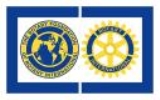
Rotary Foundation
Encyclopedia

The Rotary Foundation is a not-for-profit corporation
Corporation
A corporation is created under the laws of a state as a separate legal entity that has privileges and liabilities that are distinct from those of its members. There are many different forms of corporations, most of which are used to conduct business. Early corporations were established by charter...
that supports the efforts of Rotary International
Rotary International
Rotary International is an organization of service clubs known as Rotary Clubs located all over the world. The stated purpose of the organization is to bring together business and professional leaders to provide humanitarian service, encourage high ethical standards in all vocations, and help...
to achieve world understanding and peace through international humanitarian, educational, and cultural exchange programs. It is supported solely by voluntary contributions from Rotarians and friends of the Foundation who share its vision of a better world.
The Foundation was created in 1917 by Rotary International's sixth president, Arch C. Klumph, as an endowment fund for Rotary "to do good in the world." It has grown from an initial contribution of US$26.50 only to more than US$55 million. It is one of the largest and most prestigious international fellowship programs in the world.
Polio Eradication
PolioPlus: Rotarians have mobilized by the hundreds of thousands to ensure that children are immunized against this crippling disease and that surveillance is strong despite the poor infrastructure, extreme poverty and civil strife of many countries. Since the PolioPlus program’s inception in 1985 more than two billion children have received oral polio vaccine. To date, 209 countries, territories and areas around the world are polio-free. As of June 2004, Rotary has committed more than US$500 million to global polio eradication. Rotary has received $355 million in challenge grants from the Bill and Melinda Gates Foundation. Rotary has committed to raising $200 million by June 30, 2012. This represents another $555 million toward polio eradication.PolioPlus Fund: Grants supported out of the PolioPlus Fund that are primarily geared towards national level and supra-national efforts. For example, National PolioPlus Committee chairs or a major partner agency, such as the World Health Organization
World Health Organization
The World Health Organization is a specialized agency of the United Nations that acts as a coordinating authority on international public health. Established on 7 April 1948, with headquarters in Geneva, Switzerland, the agency inherited the mandate and resources of its predecessor, the Health...
or UNICEF may apply for these funds. Support is available for eradication efforts in polio-endemic, recently endemic, and high-risk countries, including National Immunization Days, poliovirus transmission monitoring, and other activities.
PolioPlus Partners is a program that allows Rotarians to participate in the polio eradication effort by contributing to specific social mobilization and surveillance activities in polio-endemic countries. In 2003-2004, grants were approved in Africa
Africa
Africa is the world's second largest and second most populous continent, after Asia. At about 30.2 million km² including adjacent islands, it covers 6% of the Earth's total surface area and 20.4% of the total land area...
and South Asia
South Asia
South Asia, also known as Southern Asia, is the southern region of the Asian continent, which comprises the sub-Himalayan countries and, for some authorities , also includes the adjoining countries to the west and the east...
for a total of $330,000.
Humanitarian Grants Programs
Disaster Recovery: Facilitates club efforts to support disaster preparedness and recovery.District Simplified Grants: Support for short-term service activities or humanitarian endeavors of districts in communities locally or internationally. This program began in 2003-2004 and, projects in 44 countries at a cost of US$5.2 million were awarded.
Health, Hunger and Humanity (3-H) Grants: Support for large-scale, two- to four-year projects that improve health, alleviate hunger, or promote human development. Since 1978, projects in 74 countries have been funded at a cost of US$74 million. As of 1 July 2009, the Foundation will no longer award 3-H grants, with the exception of projects being developed to support water and sanitation projects in Ghana, the Philippines, and the Dominican Republic.
3-H Planning Grants: Support for the planning activities of Rotary clubs and districts designing 3-H projects of a significant size and impact. Also in moratorium in conjunction with 3-H Grants program.
Matching Grants: – Provide matching funds for the international service projects of Rotary clubs and districts. Since 1965, more than 20,000 Matching Grants projects in 166 countries have been funded at a cost of more than US$198 million.
Educational Programs
Ambassadorial Scholarships: The Foundation supports the largest non-governmental and most international scholarship program in the world. Scholars study in a country other than their own where they serve as unofficial ambassadorAmbassador
An ambassador is the highest ranking diplomat who represents a nation and is usually accredited to a foreign sovereign or government, or to an international organization....
s of goodwill. Since 1947, over 37,000 scholars from some 110 countries have received scholarships at a cost of almost US$446 million.
Group Study Exchange (GSE): These annual awards are made to paired Rotary districts to provide travel expenses for a team of non-Rotarians from a variety of vocations. Rotarian hosts organize a four- to six-week itinerary of educational and cultural points of interest. Since 1965, almost 48,000 individuals in more than 11,000 teams from more than 100 countries have participated at a cost of US$85 million.
Rotary Peace Fellowships: Each year up to 110 fellows at the master’s degree level are sponsored to study at one of the six Rotary Centers for International Studies in peace and conflict resolution. In 2003-2004, 62 new scholars from 26 countries received grants totaling US$3.9 million for the two-year program.
Rotary Grants for University Teachers: Awarded to faculty members to teach in a developing nation for three to ten months. Since 1985, 377 university teachers have shared their expertise with a college or university in a developing country. As of 1 July 2009, the Foundation has discontinued this program.

